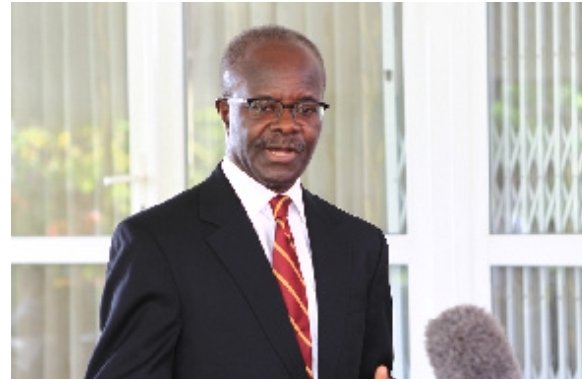Dr Papa Kwesi Nduom wins appeal in US

In US Federal court ruling available to GhanaWeb, Judge Durkin stated, “having reviewed the parties’ submissions, the Court finds that amendment would be futile and denies Plaintiff’s motion.”
“For these reasons, Plaintiff’s motion for leave to amend its complaint, R. 26, is denied. Except as otherwise stated in the Court’s prior order, dismissal of all claims is without prejudice to refile in an appropriate forum. Civil case terminated,” the judge noted.
The Court on November 23, 2021, dismissed Birim Group’s complaint in full, finding that it had not alleged a domestic injury necessary under Racketeer Influenced and Corrupt Organizations (RICO) and had failed to state a claim under most of its common-law theories.
The Court further held that any remaining claims against the Ghanaian institutions were properly dismissed under forum non-conveniens.
The California based company whose sole member was the lawyer who filed the complaint, purchased $52,219 and $30,000 claims against companies in Ghana from two citizens of its citizens – Ms. Sekyere and Mr. Barimah.
The complaint in the appeal named Dr. Papa Kwesi Nduom, GN Bank and GN Bank directors as defendants based on vague allegations of a vast international conspiracy for which the court found no supporting facts had been alleged.
Below is the full judgment of Thomas M. Durkin
MEMORANDUM OPINION AND ORDER
Plaintiff Birim Group, LLC filed this suit raising claims under the Racketeer Influenced and Corrupt Organizations (“RICO”) statute, 18 U.S.C. § 1961 et seq., and a series of common-law theories including breach of contract, fraud, and financial negligence. Plaintiff is proceeding as assignee of two Ghanaian citizens, Ms. Sekyere and Mr. Barimah (collectively, “Assignors”), who allegedly lost deposits with Ghanaian financial institutions of $52,219 and $30,000, respectively.
On November 23, 2021, the Court dismissed Plaintiff’s complaint in full, finding that it had not alleged a domestic injury necessary under RICO and had failed to state a claim under most of its common-law theories. The Court further held that any remaining claims against the Ghanaian institutions were properly dismissed under forum non-conveniens. Plaintiff now seeks leave to amend and has provided a copy of its proposed amended complaint for review. The U.S.-based Defendants filed a response opposing amendment. Having reviewed the parties’ submissions, the Court finds that amendment would be futile and denies Plaintiff’s motion.
Leave to amend is properly denied when a proposed amended complaint would not survive a motion to dismiss. See Gandhi v. Sitara Capital Mgmt., LLC, 721 F.3d 865, 869-70 (7th Cir. 2013) (affirming denial of leave where plaintiff’s proposed complaint lacked necessary elements to state fraud claim). Such is the case here. Plaintiff’s proposed amended complaint purports to remedy the “group pleading” deficiency identified in the Court’s dismissal order, but the new allegations remain conclusory or duplicative with the original complaint. The proposed amended complaint adds almost no additional details tying any of the alleged conspiratorial conduct to Assignor’s losses, which remain the touchstone of this case. Despite asserting a variety of fraud claims, the complaint still offers almost no details as to the interactions between the defrauded parties, Assignors, and the institutions they dealt with, which are all located in Ghana. Given the requirement that fraud claims be pleaded with particularity, this deficiency is fatal. See Gandhi, 721 F.3d at 870; Fed. R. Civ. P. 9(b).
Furthermore, to the extent Plaintiff has any valid claims (which remains possible as to certain claims against the Ghanaian institutions), dismissal for forum non conveniens is also appropriate. Plaintiff’s fraud claims will turn on what Assignors were told or given when they made their deposits, making Plaintiff’s suggestion that their testimony “may not be necessary” highly suspect. This makes Ghana a far more appropriate forum to litigate those claims. And while Plaintiff asserts that its choice of a U.S. forum was made in good faith, courts afford limited deference to the forum choice of a nominally domestic plaintiff suing as assignee of a foreign claimant. See Del Monte Corp. v. Everett S.S. Corp., S/A, 402 F. Supp. 237, 243 (N.D. Cal. 1973). Accordingly, the Court finds that the proposed amended complaint would be subject to forum non conveniens dismissal for the same reasons identified in its prior order.
For these reasons, Plaintiff’s motion for leave to amend its complaint, R. 26, is denied. Except as otherwise stated in the Court’s prior order, dismissal of all claims is without prejudice to refile in an appropriate forum. Civil case terminated.





